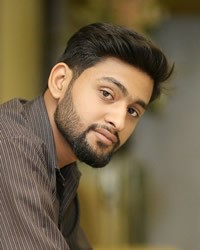Urdu in Denmark

Photo Source:
Muzaffar Somro - Pixabay
|
Send Joshua Project a map of this people group.
|
| People Name: | Urdu |
| Country: | Denmark |
| 10/40 Window: | No |
| Population: | 15,000 |
| World Population: | 2,927,200 |
| Primary Language: | Urdu |
| Primary Religion: | Islam |
| Christian Adherents: | 0.00 % |
| Evangelicals: | 0.00 % |
| Scripture: | Complete Bible |
| Ministry Resources: | Yes |
| Jesus Film: | Yes |
| Audio Recordings: | Yes |
| People Cluster: | South Asia - other |
| Affinity Bloc: | South Asian Peoples |
| Progress Level: |
|
Introduction / History
The term "Urdu" does not adequately describe the Urdu people as such but is merely a language distinction. Urdu, now the official language of Pakistan, is an Indo-Iranian language that developed from the Hindi language. It is heavily laden with Persian and Arabic words and is written in the Persian script. Urdu-speaking Muslims are not an ethnic group in the strictest sense but are rather a collection of ethnic groups who have been widely dispersed geographically. They possess a sense of group identity based on cultural and historical factors.
A majority of the Urdu speakers originate in Pakistan and the northern states of India. However, in recent years, many Urdu-speaking Muslims have emigrated to European countries like Denmark, searching for economic opportunities. Urdu speaking skilled laborers and highly educated professionals have emigrated to Western Europe.
Muslim minorities like the Urdu speakers live mainly in urban centers like Copenhagen, Denmark.
What Are Their Lives Like?
Though many come to Europe with a good educational background, Urdu speaking Pakistanis sometimes face difficulties in Denmark's work force. Others have high paying jobs and prosperous lives.
These factors have made some of them open to joining militant Islamicists who wage war in the Middle East and commit terrorist attacks in Europe. Urdu speakers often have their own Islamic schools. In doing so, they keep themselves separate from the Danish majority. Such Muslims are often looked upon with suspicion by the Danish majority.
Marriage has been a source of contention between the generations. Until the 1990s, it was common for Urdu speakers to marry someone from outside the country, often a cousin. This was frowned upon by the Danes. It was becoming less acceptable among younger Urdu speakers. Today few of these Muslims have “boyfriends” or “girlfriends,” and those who do often face the wrath of their parents. Traditional Urdu parents want their children to get married to someone who is acceptable to their family. However, the parameters are becoming more flexible as time progresses. Unfortunately, the divorce rate among Urdu speakers is increasing.
What Are Their Beliefs?
Although the Urdu speakers are all Muslims, this is no longer a unifying factor. There are intense differences among the various Muslim sects; the Hanafites, Shafiites, and Ithna-Asharis. Since entire communities tend to migrate together, different Islamic sects stick together in a given country. Islam is central to their identity even for those who do not practice it.
What Are Their Needs?
Very few mission agencies are focusing on the Urdu speaking communities in Denmark. There needs to be greater efforts to effectively reach Urdu speakers with the gospel in Europe where there is freedom of religion.
Assuming all Europeans are "Christian," Urdu speakers equate sexual immorality and the like with "Christianity." They need to see true Christianity lived out to understand that it has something valid for anyone who wants to live a holy life.
Prayer Points
Pray that God will open doors for Christian businessmen to share the gospel with Urdu speakers in Denmark.
Ask the Holy Spirit to soften the hearts of the Urdu towards true believers so that they will be receptive to the gospel.
Ask the Lord to raise up strong local churches among the Diaspora Urdu.
Ask God to strengthen, encourage, and protect the small number of Urdu Muslims that follow Christ.
Pray that these believers will be bold in their witness for Christ.